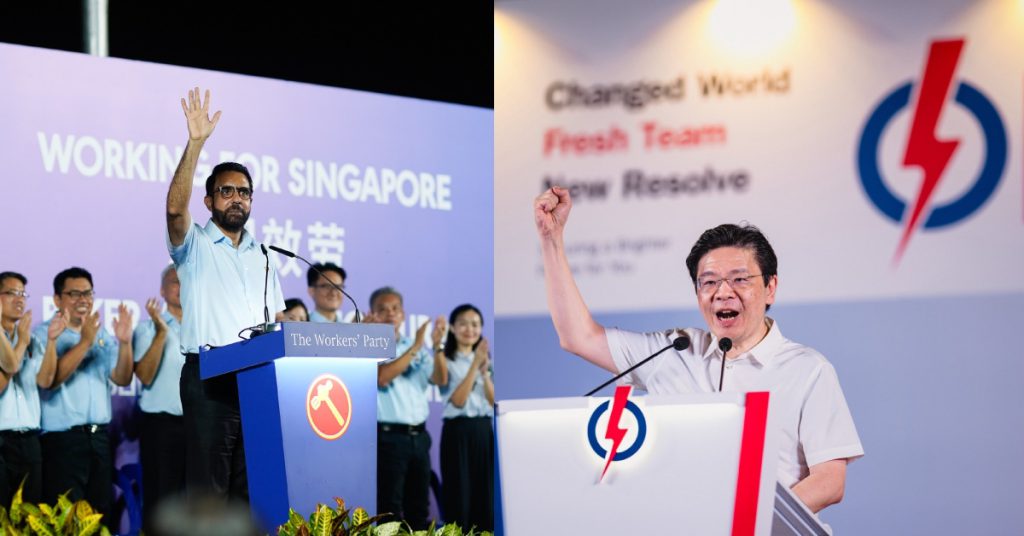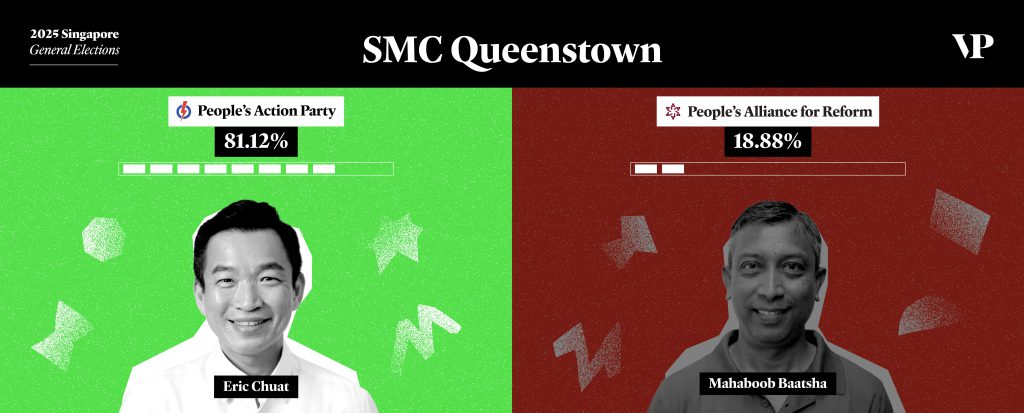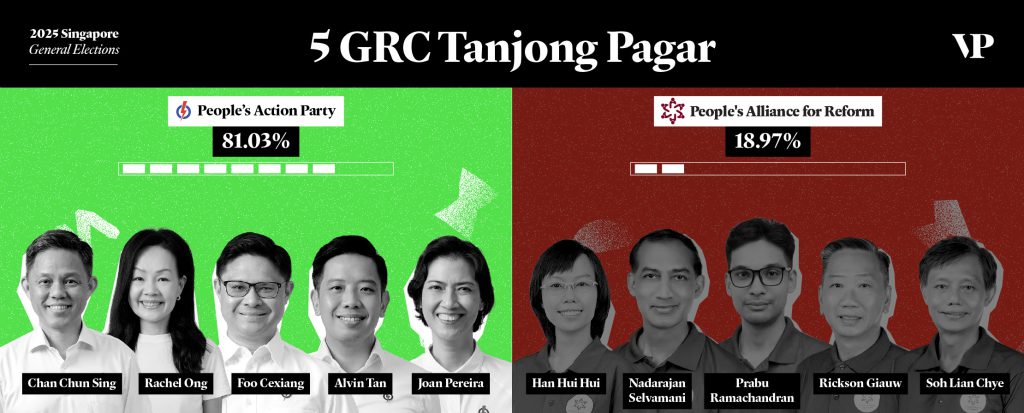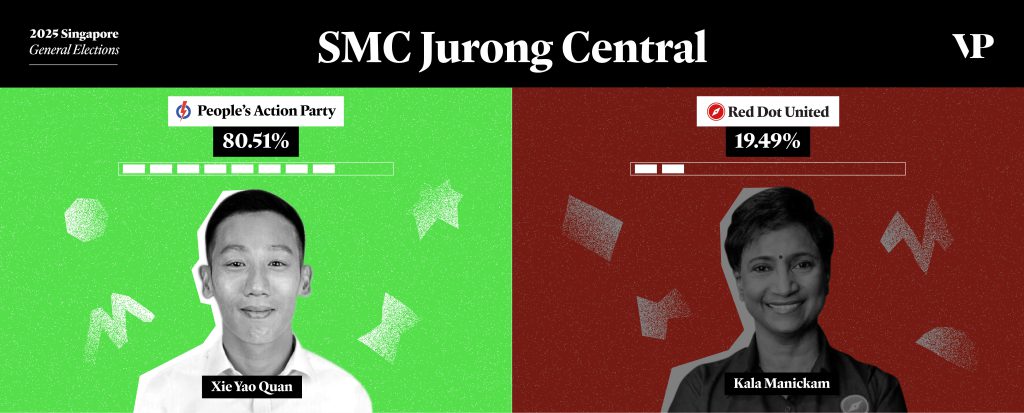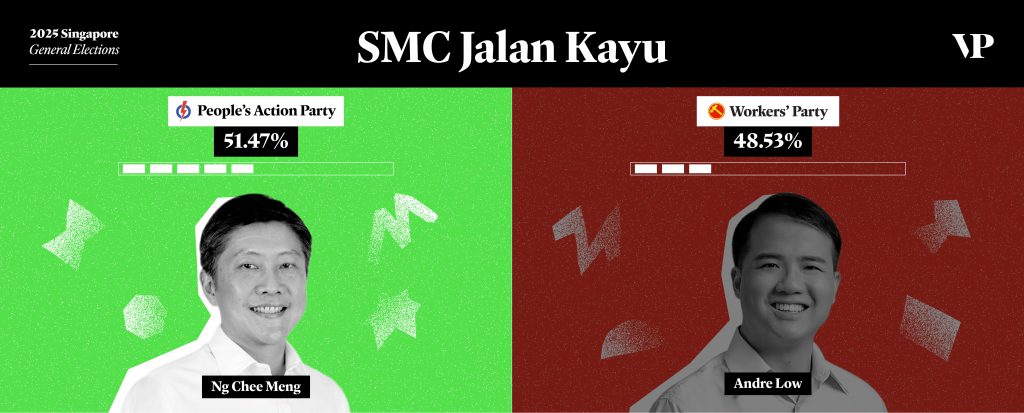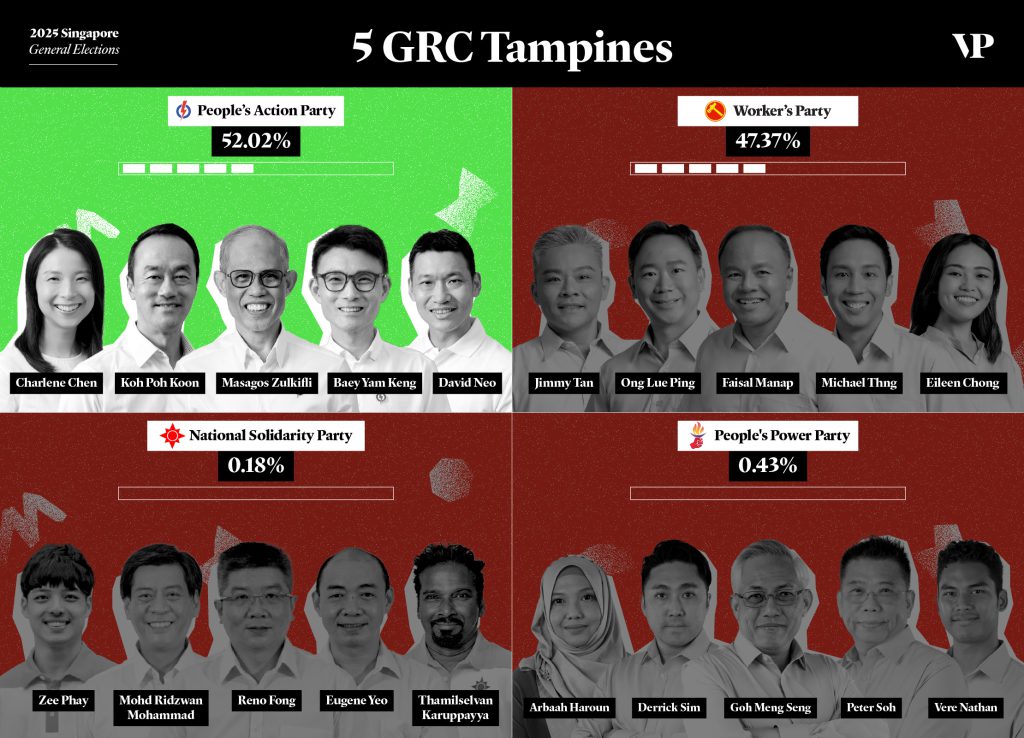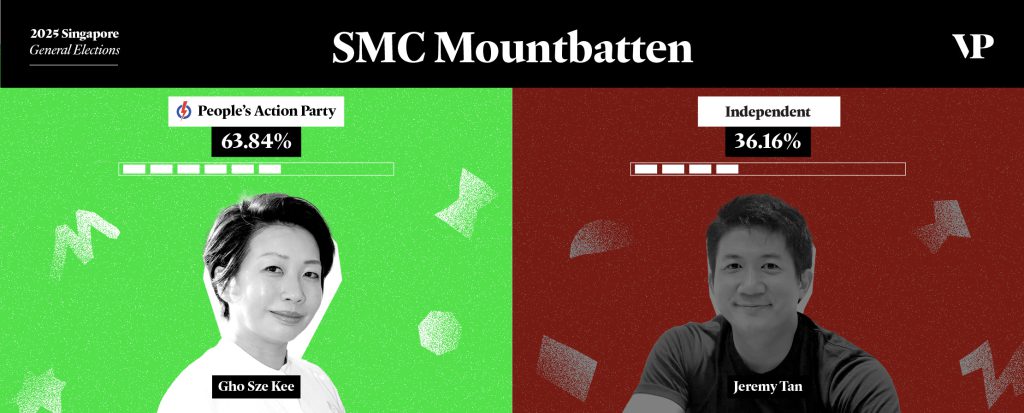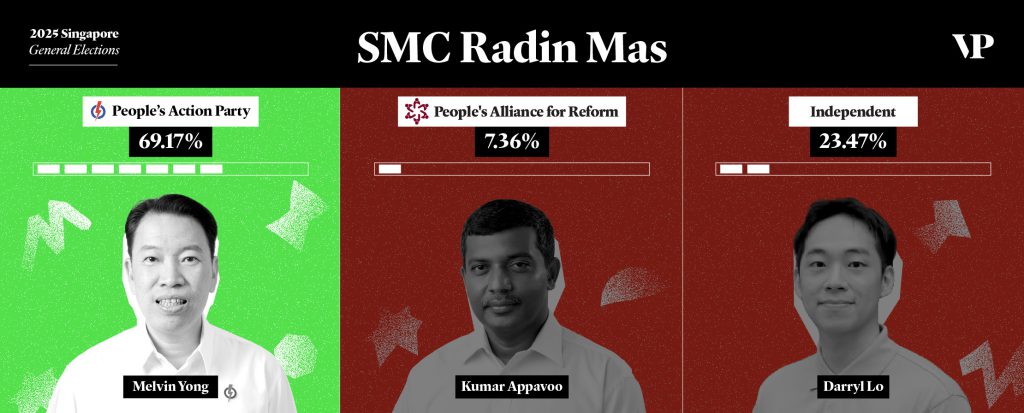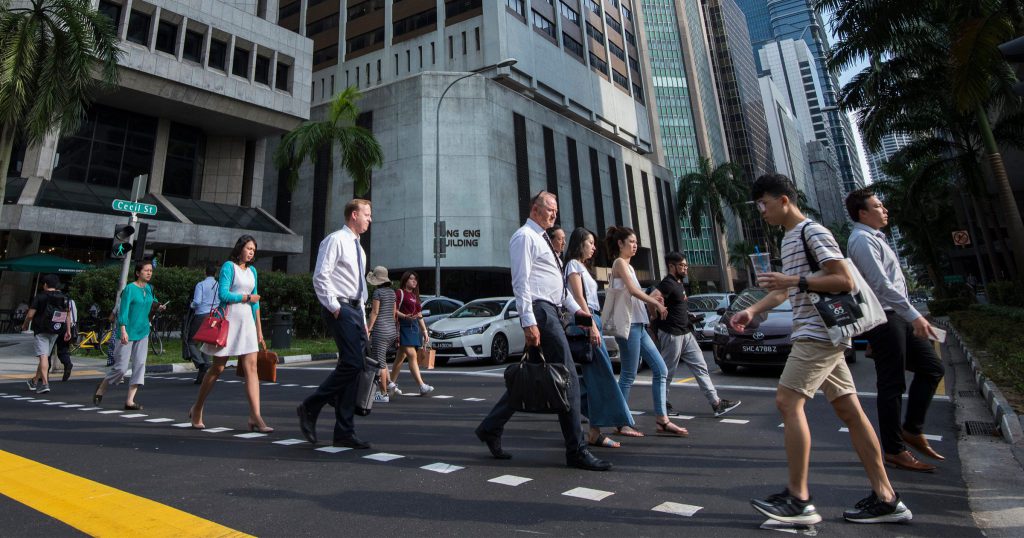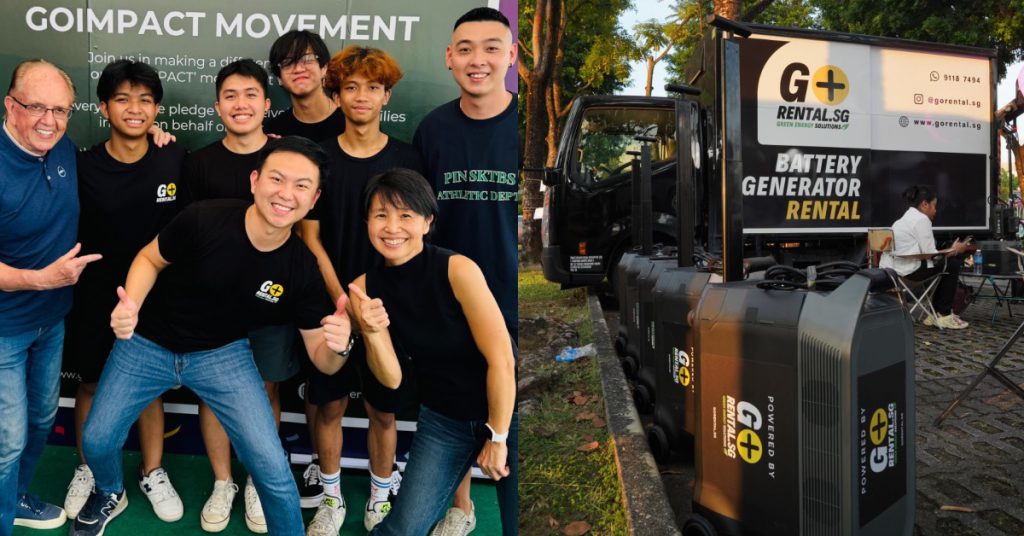As the dust settles on GE2025, there’s plenty to remember it for.
Not only did it mark the debut of a new Prime Minister, but it also introduced a fresh slate of candidates from both the ruling party and the opposition, alongside the return of physical rallies.
Despite the hype and fierce contests we witnessed, the city-state has seemed to find itself back in the status quo, with the People’s Action Party (PAP) winning 87 out of 97 seats and the Workers’ Party defending its 10 constituencies gained from GE2020.
When comparing it to the previous election, it seems that Singaporeans’ desire for change has waned. But is that truly the case?
Here’s what experts have to say, along with our two cents on the matter.
A strong mandate for the 4G leaders
Previously, on an episode of The Daily Ketchup, Singaporean political analyst Walid Jumblatt Bin Abdullah stated that the GE2025 results will be a referendum on the 4G leadership and specifically, on Prime Minister Lawrence Wong.
He also highlighted a historical trend: the PAP’s vote share usually dips whenever a new Prime Minister is elected. However, this did not appear to be the case for PM Wong.
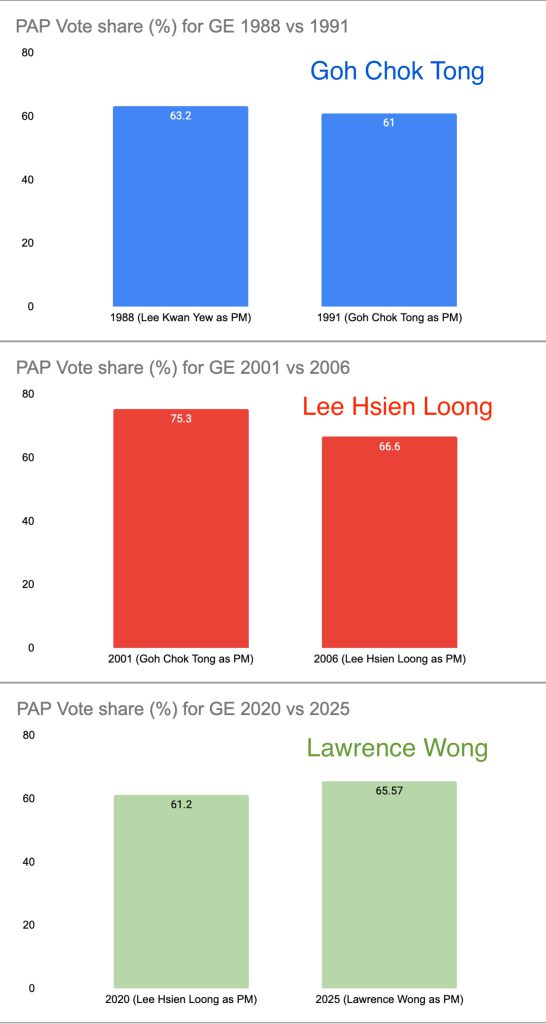
For GE2025, PAP’s vote share has increased by slightly more than 4%, earning 65.57% of the popular vote, despite it being PM Wong’s first general election as both Prime Minister and secretary-general of the party.
The PAP also saw historically high vote share margins in certain areas, securing three constituencies with margins exceeding 80%: Queenstown SMC (81.12%), Tanjong Pagar GRC (81.03%), and Jurong Central SMC (80.51%).
This could be attributed to how the 4G leadership navigated through global crises in the past.
When the COVID-19 pandemic hit, PM Wong, then Minister for National Development, was appointed as co-chair in the multi-ministry task force, alongside Deputy Prime Minister (DPM) Gan Kim Yong, who was the health minister at the time.
PM Wong was recognised for his calm yet assertive demeanour when addressing the media, and played a crucial role in formulating policies and aid for residents in Singapore. The taskforce implemented contact tracing and “speedy roll-out” of vaccines, which prevented a large number of deaths compared to other Southeast Asian countries.
The adaptability of the 4G leadership was also evident when US President Donald Trump recently announced the tariffs in April—PM Wong was quick to address Singaporeans’ concerns, initially through his social media platforms and later in Parliament.
The government also put together another taskforce, which will work on short and long-term strategies to help businesses and workers cope with the effects of the new tariffs.
While these strategies are still being discussed, it’s clear that we’re now in a turbulent economic environment—and given the 4G leadership’s track record, it looks like Singaporeans have opted for a stable government to navigate these challenges by giving the incumbent a “clear and strong mandate to govern.”
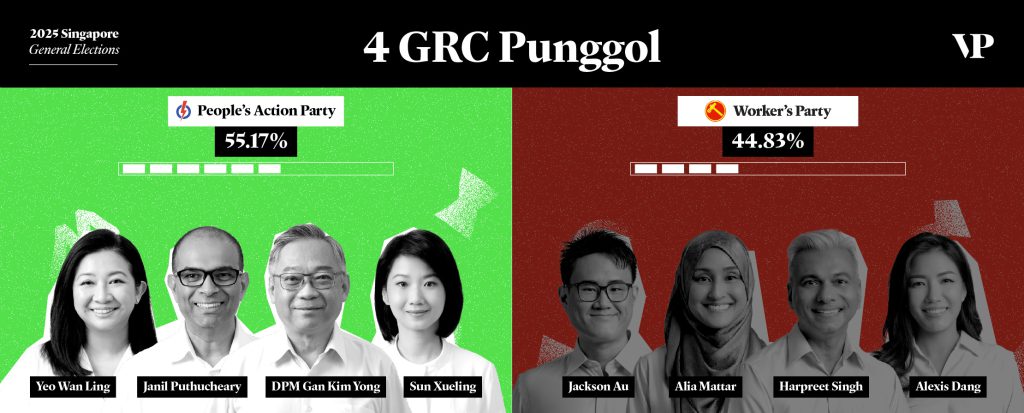
The GE2025 results also suggest that the PAP’s political strategy has worked. The party made several last-minute changes on Nomination Day, including fielding DPM Gan Kim Yong in Punggol GRC.
Although these sudden switch-ups drew criticism from opposition parties—who even accused the PAP of being “irresponsible” and “abandoning” constituencies—the results ultimately validated the party’s tactical decisions.
Some opposition made inroads, others didn’t
As we headed into GE2025, one prominent theme was the call for more opposition voices in Parliament, a message that opposition parties made central to their campaign.
To strengthen their positions, these parties also bolstered their teams with new faces, hoping to secure more parliamentary seats.
Buoyed by the performance of its previous slate of elected MPs, the Workers’ Party has been able to attract a stronger bench of candidates for GE2025, according to analysts. Its lineup for this election featured several standout individuals, with observers noting an “improvement in the calibre of talent the party has been able to attract.”

But while these new faces garnered praise from netizens, they ultimately fell short of securing seats in Parliament. In the end, the WP was unable to make further inroads, retaining only its existing strongholds.
That said, the party did, however, manage to increase its winning margins in Sengkang GRC and Hougang SMC.
It also secured the two NCMP seats as the “best losers” in this general election, in Tampines GRC and Jalan Kayu SMC. Should they choose to accept them, the party will have a total of 12 seats in the next Parliament—the largest number of opposition voices in history.
The other opposition parties that have introduced new candidates—including ex-lawyer Stephanie Tan from the Progress Singapore Party (PSP) and Ariffin Sha, the founder of alternative sociopolitical news site Wake Up Singapore, representing the Singapore Democratic Party (SDP)—also didn’t quite see improved performances.
It could be said that these candidates were simply “too fresh” for this election, but even then, seasoned political veterans struggled to gain ground in GE2025.
Most of them (save for SDP’s Chee Soon Juan, who has managed to improve his vote share from GE2020), in fact, saw declines, including Paul Tambayah and the PSP team at West Coast-Jurong West led by Tan Cheng Bock.
GE2025 also marked a tough outing for smaller opposition parties, with a record number of teams losing their electoral deposits across seven constituencies.
Analysts say the results reflect a more “discerning” electorate, where they will vote for the parties that they think are viable. In light of this shift, smaller opposition parties may need to reassess their value propositions or risk losing political relevance.
That said, it’s interesting to note the performances of the two new independent candidates in this election: Jeremy Tan in Mountbatten SMC and Daryl Lo in Radin Mas SMC.
Although both have lost in their constituencies, they performed better than other opposition parties, with Lo earning 23.47% of the vote share when compared to PAR’s 7.36%. Tan gained 36.16% share of the vote, which is the highest vote share by an independent candidate in the last 53 years.
Political observers said the pair were able to put their views across coherently during their campaigns, and were perceived to be sufficiently credible by voters.
Becoming a more proactive citizenry
This general election also revealed some concerning trends—for one, Singapore saw a record low voter turnout of 92.47%. While analysts note that the timing of the election may have clashed with voters’ travel plans, particularly in more affluent wards, “voter paralysis” may have also played a part.
In tightly contested constituencies, some undecided voters may have simply chosen not to make a choice at all. In wards where the ruling party was seen as dominant, others may have felt their vote wouldn’t make a difference, ultimately deciding not to cast it at all.
Street interviews conducted by local media also underscored a worrying level of political disengagement, highlighting signs of both total and selective political blindness within Singaporeans.
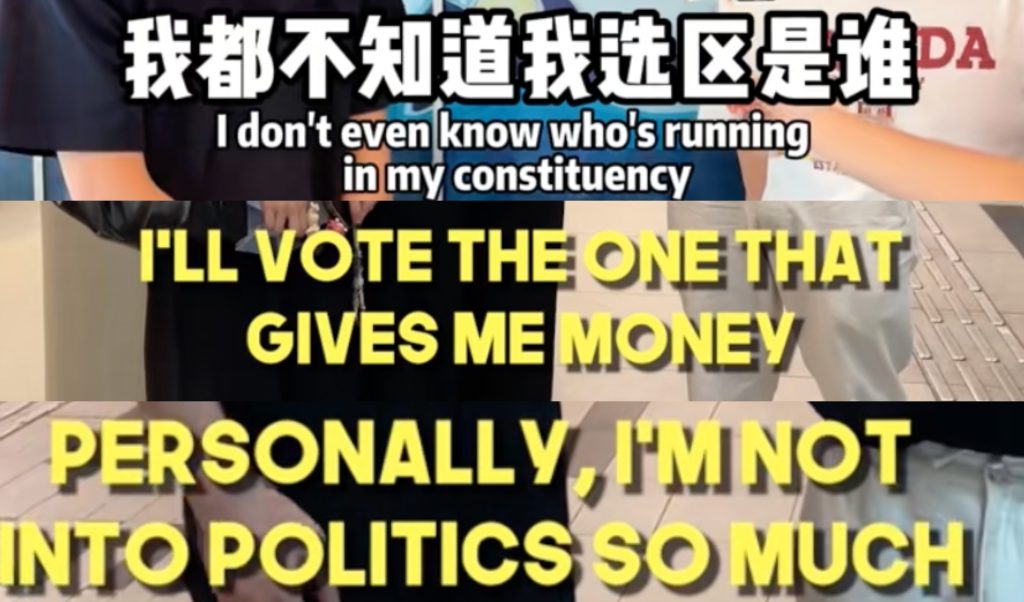
In particular, one Singaporean TikToker drew flak for seemingly casting her vote based on memes made of political candidates. She has subsequently made an apology, stating that she would make an effort to educate herself in the future.
In this day and age, with information readily accessible and condensed to cater for shorter attention spans, voters should at least attempt to get a general idea of what different parties are advocating for and how they can potentially affect their lives in Singapore.
At this point, some people might still choose to ask, “So what?”
Our answer to that is that making uninformed choices or even not choosing to vote could lead to an inaccurate representation of where Singaporeans want to grow politically, and it can have dire consequences in the future.
[The call for institutional reform] also requires one thing of citizens: The realisation that democracy does not only demand active participation during election campaigns, but throughout one’s existence.
Professor Walid Jumblatt Bin Abdullah reflecting on GE2025’s results
Check out our GE2025 microsite for the latest election-related news, find out which constituency you belong to, and who won here.
Featured Image Credit: Workers’ Party and Lawrence Wong via Facebook


